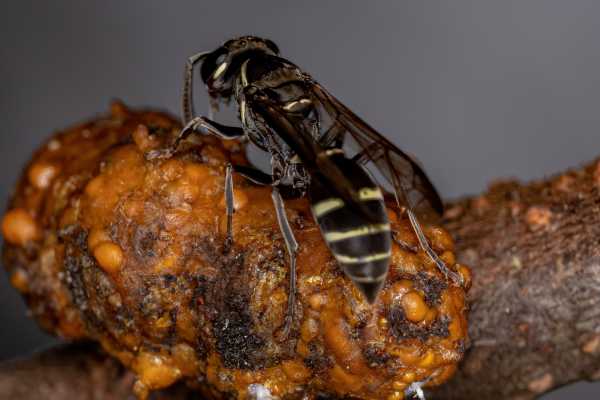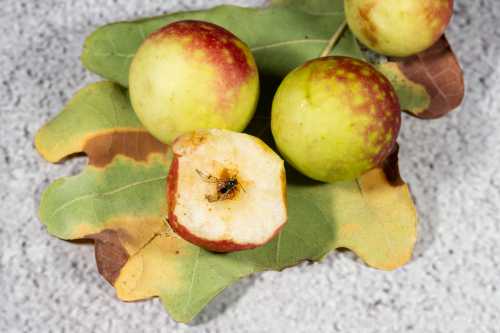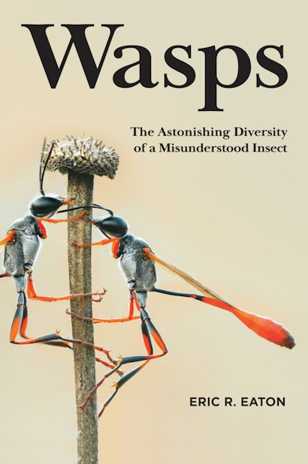The Yellowjacket Nests
Yellowjackets are wasps that belong to either the Vespula or the Dolichovespula genus1.
The species people are mostly familiar with are yellow and black, but there are exceptions to this appearance, such as the black and white Baldfaced hornet, which is actually a wasp belonging in the Dolichovespula genus.
Secondly, not all yellow and black species are yellowjackets. For example, black and yellow species of the paper wasps, of the genus Polistes, are not included in the yellowjacket group.
About The Yellowjacket Nest
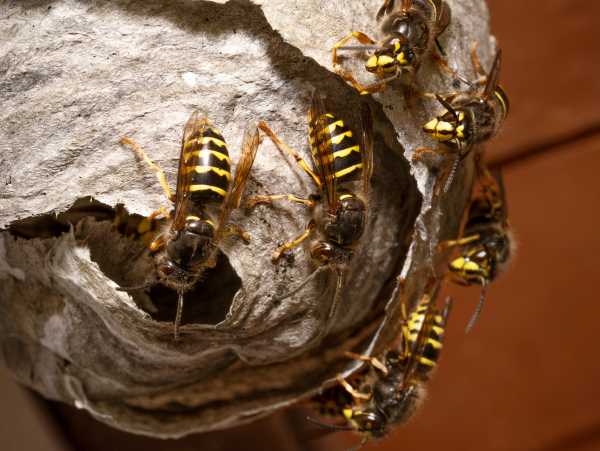 Yellowjacket nest of the Median wasp (Dolichovespula media).
Yellowjacket nest of the Median wasp (Dolichovespula media).
Yellowjackets belonging to the Dolichovespula genus build aerial nests affixed to tree branches, but may also be seen attached to structures, including buildings and deck overhangs.
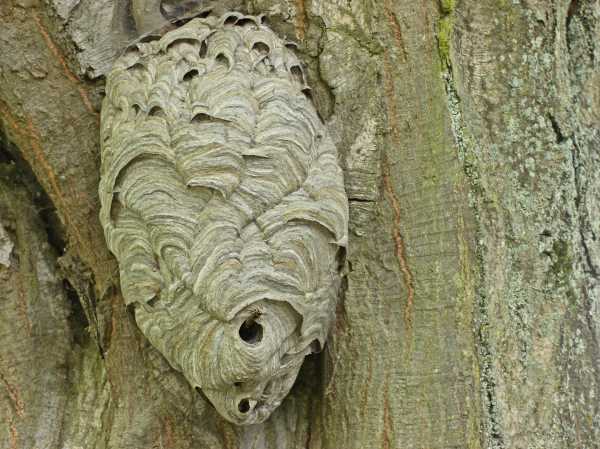 Nest of the yellowjacket wasp Dolichovespula media, Median wasp.
Nest of the yellowjacket wasp Dolichovespula media, Median wasp.They are made from small
amounts of leaf and rotten wood which are chewed by the wasps, and used to
construct a nest, increasing in size as the season progresses.
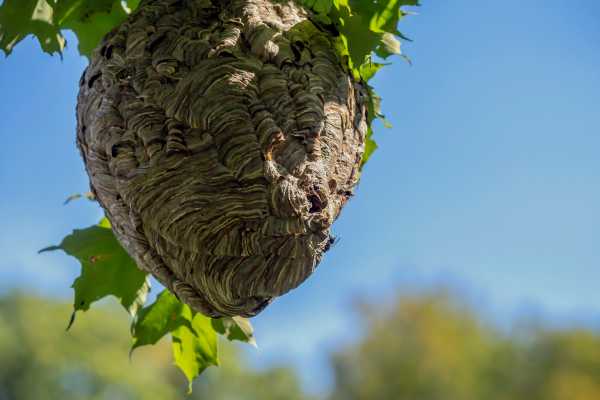 Nest of the yellowjacket, Dolichovespula maculata, Bald-faced hornet.
Nest of the yellowjacket, Dolichovespula maculata, Bald-faced hornet.Yellowjacket wasps of the genus Vespula are cavity nesters. They may take advantage of aerial cavities, including man-made ones, such as chimneys, but will also make use of underground cavities, such as disused rabbit holes or similar burrows.
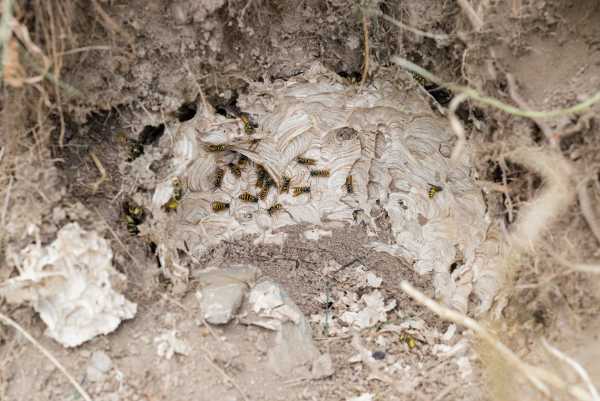 Ground nest of a yellowjacket wasp (Vespula species).
Ground nest of a yellowjacket wasp (Vespula species).How large are yellowjacket nests?
It depends on the species. Some colonies can contain as few as 75 individuals, on the other hand, the colonies of some species have been known to consist of around 1 million wasps in some regions of the world.
How long do yellowjacket nests last?
Most colonies last a season, but a few perennial colonies are known in some regions of the world.
Both Vespula sulphurea (California yellowjacket) and Vespula pensylvanica (Western yellowjacket) are known to create perennial nests1.
You can read more about this subject on my page about wasps and yellowjackets.
Should I get rid of a yellowjacket nest?
If a nest is not in an inconvenient place and is also not a perennial nest, it is sometimes quite okay to leave the nest alone.
You can read my page about wasps nests, outlining personal experiences from visitors to this website. In each scenario, the nest was temporary.
Wasps are pollinators and perform some useful roles as predators of crop and garden pests, but the choice has to be your own.
There are also steps you can take to deter wasps.
References
1. Reed, Hal C. and Peter Landolt. “Ants, Wasps, and Bees (Hymenoptera).” Medical and Veterinary Entomology (2019): n. pag.
If you found this page helpful or interesting, I'd really be grateful if you would share it with others - if not this page, perhaps another, such as Gardening For Bees.
Thank you so much :) .
